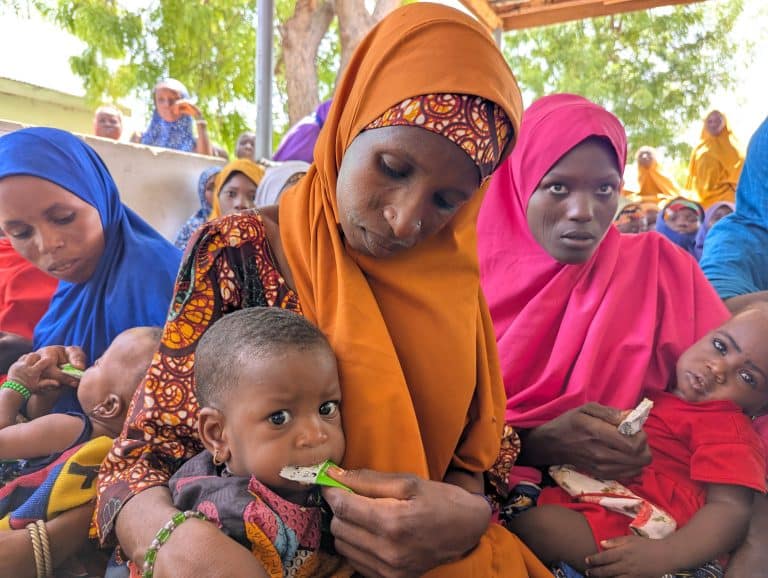Tell us about the importance of mental healthcare in Burkina Faso
Due to the rising levels of insecurity in Burkina Faso, we are facing an increasing number of internally Displaced Persons (IDP). Forced population movements cause cycles of vulnerability that result in post-traumatic stress. When your life is threatened by a sudden event (being forced out of your home or village without any preparation, witnessing massacres, fleeing from threatening situations…) it affects you psychologically, so it is important that we provide psychosocial support. Not only for the displaced, but also for the local people who have to share their homes, food, and other basic needs with IDPs, and who, as a result, also find themselves in a cycle of vulnerability.
How long has ALIMA been working with displaced populations?
ALIMA has been working in Burkina Faso in partnership with local NGOs Keoogo and SOS Médecins Burkina Faso since 2012. Our teams started operations by providing medical-nutritional care and pediatric emergency services. However in January 2019 the security situation deteriorated dramatically. During the night of January 1 to 2, the village of Yirgou was attacked by an armed group. Retaliation ensued, resulting in several casualties. Faced with this situation and its consequences for the survivors, we rapidly deployed mental health and psychosocial support services.
In concrete terms, how is this type of care provided?
The initial contact with patients, who may be traumatized by their experience, is a crucial phase for the success of our work. We organize psycho-education sessions in the community or in local health centers, to reach psychologically affected people. When a patient enters our psychosocial care program, we begin by introducing ourselves and explaining our role, insisting on strict confidentiality. In such security contexts like these, trust is a key element of patient adherence.
Once we have identified the patient’s symptoms, we set up an action plan together with the patient to find solutions to their problem. We then organize individual, family or group psychotherapy sessions. Additional follow-up sessions may be organized as needed depending on the evolution of the patient’s condition.
If the patient needs other types of support, we can refer them to partner organizations such as our local partner Keoogo, who has extensive experience in offering protection and rehabilitation services for particularly vulnerable children.
Do you recall a patient’s story that made a particular impression on you?
I remember the story of a young patient. In July 2020, she went to Bonde (Centre-Nord) to visit her mother. She told me:
“One day, when I was going to the water with four other girls my age (17 at the time), armed men surrounded us and raped us. I was scared and traumatized. I took a pregnancy test and I am pregnant. My aunt, who is my guardian, asked me to keep the child but my parents rejected me. I am in the 8th grade and I feel like I have no future. I cry all the time, I have nightmares.”
Following this traumatic event, the young patient felt a deep sense of abandonment from her family and parents. So, we contacted her aunt, as the patient was a minor and under her care. Her aunt acted as an intermediary between her and her parents, until we got the opportunity to talk to them directly. We conducted a sensitization session for her parents: we explained what rape is and what its consequences are, and they understood that their daughter was a victim, that she had done nothing wrong. Following this session, the patient’s father talked to the rest of the family and since that day, her mother has accompanied her to medical consultations. Now the patient has given birth. She and her child are doing well. She is, however, facing financial difficulties that the young woman is going through, and so we have referred her to our partner Keoogo, so she may benefit from socio-economic reintegration services.
Cover photo : © ALIMA





